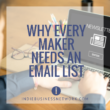Yesterday, I Tweeted my experience linking from a small business owner's Twitter page to her website, and not finding her name anywhere. There was also no phone number and no address, yet her products were sold via a shopping cart at her site and her newsletter subscription form required subscribers to enter a first and last name along with an email address. My Tweet received a few replies, some of them asking why it was important for small business owners to use their names online.
I was a bit shocked that some online merchants thought there was nothing odd about asking people to do business with you anonymously. Here are some of the main reasons why I think business owners, regardless of size, should share their identities online, especially if they are relying on the Internet for the bulk of their sales.
-
Trust. The people who already know you don't care what you call yourself. But you won't survive in business for very long if you are only selling to people who you know. In order to expand your customer base, you have to influence complete strangers to trust you, and one of the ways to do that is to be honest and open about who you are at your website and the media outlets you use to share your ideas: Twitter, blog, newsletter, FaceBook, YouTube, etc.
More than ever, small business success depends on your ability to communicate with people in a personal way. This type of one-on-one interaction is one of the things that sets real small businesses apart from nameless mega-companies. Who you are gives your small business a significant amount of leverage. Use it.
-
Social Media Marketing Requires Transparency. In order to influence people in real life, you have to let them know who you are. It's no different online. The best way to connect with someone in person is by looking them in the eye, extending your hand and saying, “Hello, my name is ….” This level of transparency cannot be duplicated online, but it can be borrowed by being open, honest and above board about who you are.
When you share who you are, people are far more likely to relate to you and to share your ideas with their friends.
-
Credibility. In order to grow your business and expand your opportunities as a business leader, you must be credible. Being quoted in the media is a great way to bolster your credibility, yet it will never happen if you don't tell people who you are. No editor is going to tell her readers about a nameless, faceless person.
You are the best media outlet for your business, but only if people know you Y-O-U are! If you want to be taken seriously by everyone from editors to potential collaborators to customers, you must be credible, and people who hide their identifies, yet still expect you to do business with them using yours, are simply not credible.
Special Situations
Some people sell products online not as business owners, but as hobbyists. Others may be stalking victims or involved in special challenging situations, such as child custody disputes, which may require them to remain anonymous. I am not talking about those cases here. Those situations are the exception, not the rule.
Successful relationships precede successful businesses. People want to learn from and do business with people they can trust. If someone already knows you, they won't really care that your name and contact information are not at your website or social networks because they already have it. But if they don't know who you are, and they can get the same or similar products you sell from someone who is not hiding who they are, who do you think they are more likely to do business with?
Who would you do business with?



